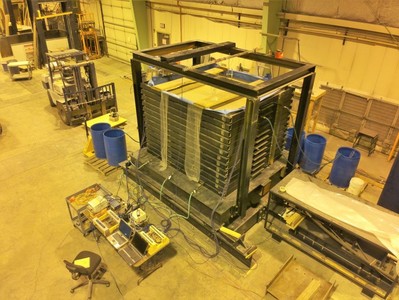报告题目:Time-Dependent Cone Penetration Resistance of a Post-Liquefaction Sand Deposit at Shallow Depth
报告人:Dr. Ming Xiao, The Pennsylvania State University,University Park
报告时间:2018年5月31日 上午8:30
报告地点:芝纶馆402会议室
主办单位:河海大学 威尼斯人v23com
邀请人:罗玉龙 副教授
报告人简介:肖溟,1995年毕业于山东大学土木工程系,1997年毕业于浙江大学,获岩土工程硕士学位,2001年毕业于堪萨斯州立大学,获计算机科学硕士学位和岩土工程博士学位。2001年至2002年,在北方电讯研发部工作,2002年至2005年,在堪萨斯州立大学,从事博士后研究,参与了美国国家宇航局太空岩土工程的研究和美国农业部的环境岩土工程的项目。2005年至2013在加州州立大学任助理教授和副教授;2013年至今在宾夕法尼亚州立大学(大学城校园)任副教授。主要研究方向包括:水土相互作用和土木工程设施在自然灾害下的反应和机理等。肖溟在国际期刊和学术会议上发表论文60余篇,并著有两本专著。肖溟现在担任美国国家科学基金,联邦交通部,内务部,加州和宾州交通局等科研项目的主要负责人。肖溟教授是美国土木工程师协会岩土侵蚀技术委员会主席,ASTM Journal of Testing and Evaluation 编委,第4届 GeoShanghai (2018年)国际会议的副主席,第10届岩土侵蚀与冲刷国际会议(2020年)的主席。
报告摘要:The liquefaction resistance of post-liquefaction sand is time-dependent and still largely unknown. Some evidence suggests that if a field deposit is subjected to liquefaction, the resistance to subsequent soil liquefaction may decrease compared to its pre-liquefaction resistance due to increased anisotropy of soil and/or “clock-resetting” of the geologic aging. In this paper, the time-dependent liquefaction resistance of a post-liquefaction sand deposit is studied using 1-g shake table experimental modeling and piezo-cone penetration testing (CPTu). A uniform liquefiable sand deposit was air-pluviated and fully saturated in a large laminar shear box (L×W×H: 2.29 m × 2.13 m × 1.83 m). The sand deposit was subjected to a liquefying shaking event in the laminar box. Piezometers were embedded at different depths to capture the seismic response of liquefied sand. The measured excess pore pressures were used to verify the occurrence of liquefaction. A series of CPTu tests were then conducted to measure the cone penetration resistance, friction resistance, and pore water pressure throughout the depth of the post-liquefaction sand deposit. To capture the sand aging effect after liquefaction, CPTu tests were done at different locations over a total elapsed time of 135 days. The main findings of this paper are: (1) The cone penetration resistance of the sand deposit decreased significantly immediately after liquefaction when compared with that before liquefaction; (2) the cone penetration resistance of the post-liquefaction sand deposit increased with time; a relationship between cone penetration resistance and time at different effective stresses is proposed, (3) the CPTu results were normalized with respect to effective overburden stress and the relationship between normalized CPTu results of the post-liquefaction sand deposit and time is proposed.

